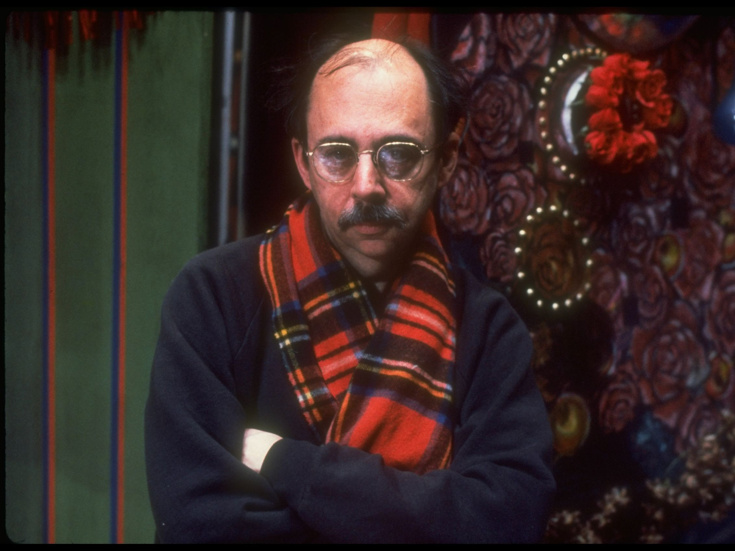Richard Foreman, Avant-Garde Playwright Who Nurtured New Voices, Dies at 87

(Photo c/o Billy Rose Theatre Division/NPYL)
Richard Foreman, the avant-garde playwright, died on Saturday in Manhattan from complications with pneumonia. He was 87.
Born on June 10, 1937, Foreman grew up in Scarsdale, New York. He fell in love with the theater at the age of nine after seeing the operettas of Gilbert and Sullivan. He started writing plays while still in high school and regularly visited Manhattan to see Broadway shows. Even then, commercially successful shows were not to his taste. “I used to hate most of the things that were the big hits,” he told The New York Times in 1988. “I would think, ‘How can I go into the theater? My taste is so different.’”
At Brown University, earning a degree in English, and later studying playwriting and directing at Yale School of Drama, he was influenced by the work of Gertrude Stein and Bertolt Brecht as well as the underground New York filmmakers of the ‘60s.
In 1968, Foreman founded the Ontological-Hysteric Theater in New York City, a company dedicated to producing works that challenge conventional theatrical norms. The company’s work often eschewed linear plots, instead immersing audiences in a collage of ideas and sensory impressions. Audiences tended to walk out of shows. “We expected people to walk out,” Foreman told The Brooklyn Rail in 2020. “I wasn’t particularly happy about it. But I was proud about it in a way because in those days, a lot of the art that I liked, people were walking out of.”
As an incubator, the Ontological-Hysteric Theater nurtured the talents of young and emerging theater practitioners including Elevator Repair Service and Young Jean Lee. Foreman himself has received numerous accolades, including several Obie Awards, a MacArthur Fellowship (1995) and the PEN/Laura Pels International Foundation for Theater Award for Master American Dramatist (2004). Beyond his work with the Ontological-Hysteric Theater, Foreman gained recognition directing such works as Bertolt Brecht's The Threepenny Opera at Lincoln Center and Suzan-Lori Parks' Venus at the Public Theater.
"Farewell to Richard Foreman, one of theater's most complete auteurs, who turned human uncertainty into the stuff of crackling, head-spinning spectacle," New York Times' former theater critic Ben Brantley said on X. "His annual, expert existential funhouses at St. Mark's Church were where you went to get lost. A titan has left the stage."
Foreman is survived by his wife, the artist and actress Kate Manheim.